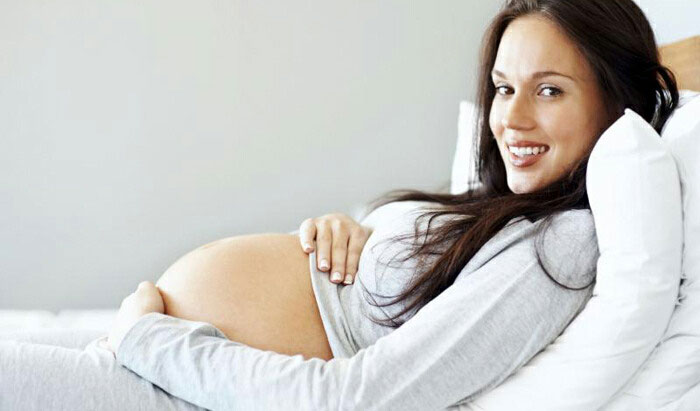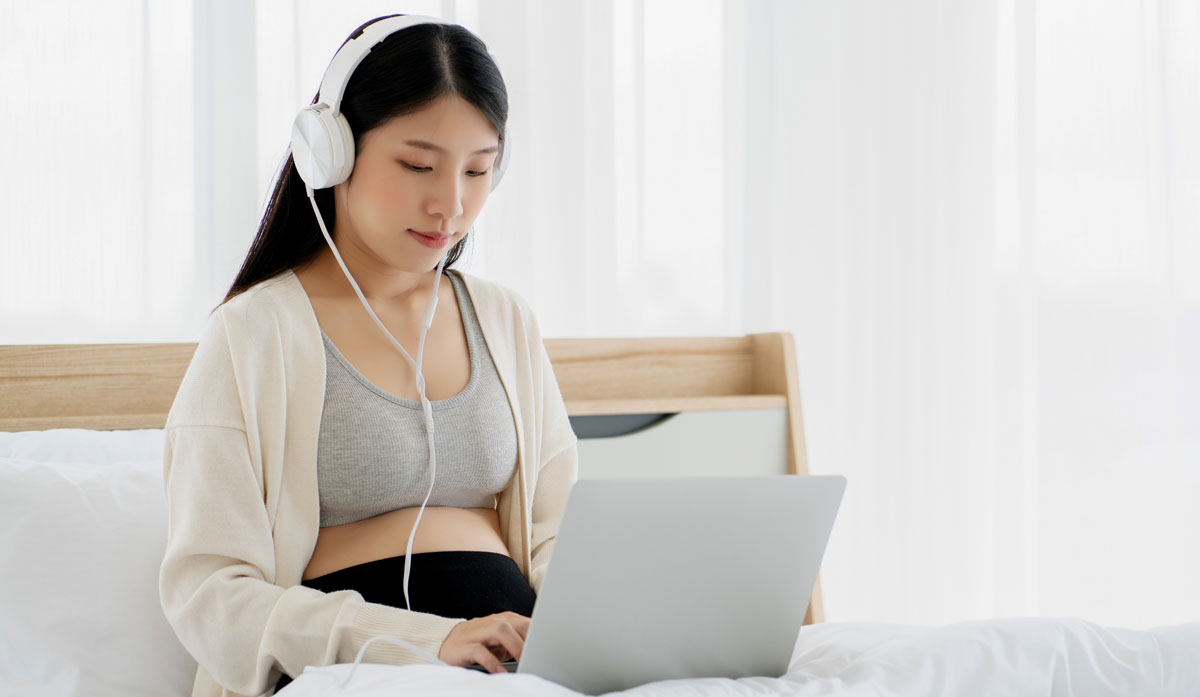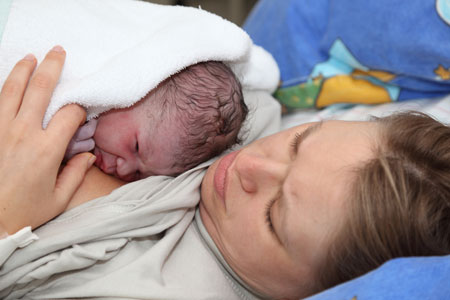Navigating COVID-19 and pregnancy, birth and breastfeeding care
The new coronavirus worries us all. But if you face both COVID-19 and pregnancy, you might have more worries than others. Researchers are learning about coronavirus and pregnancy and how the pandemic affects new mothers.
COVID-19 and pregnancy – effects on women and new babies
 First, let’s go over the key info on coronavirus and pregnancy. Many of the annoying colds you get are common coronaviruses. However, some members of the coronavirus family cause severe breathing problems. This includes COVID-19.
First, let’s go over the key info on coronavirus and pregnancy. Many of the annoying colds you get are common coronaviruses. However, some members of the coronavirus family cause severe breathing problems. This includes COVID-19.
The information we have about this new virus continues to emerge. It’s vital to get the latest local advice from your midwife or doctor. Not only is our knowledge of the virus still developing, but the virus itself mutates. Different countries have several different variants. And unfortunately, some are extra contagious.
There’s also good news. So far, there’s no evidence that pregnant women are more likely to catch COVID-19.
If you become infected during pregnancy, the outlook for your baby is good. Coronavirus doesn’t seem to increase your chances of miscarriage. It doesn’t seem to harm the baby’s development either. We don’t yet know whether babies can catch the virus from mum during pregnancy.
After birth, most babies born to mothers with COVID-19 are just as well as other babies. The risk of newborns catching the virus from mum is low, according to a late 2020 research review. You can reduce the chance of passing the virus on by washing your hands and wearing a mask.
The prospects for most pregnant women with COVID-19 are also good. You would probably have only mild to moderate symptoms and get better quickly. Of course, some people do become very sick. It’s more likely when they already have poorer health. You can talk to your midwife and doctor about your situation.
How women are finding the restrictions on pregnancy visits with midwives and doctors
Because they want to avoid places they might pick up the virus, some women are reluctant to visit their healthcare providers. Some even consider home birth when they had planned to birth in a hospital. However, it’s still important to have your routine pregnancy appointments.
As well as going to routine appointments, it’s just as vital to get advice whenever you have concerns. Worryingly, one study found 4 out of 10 pregnant women in the UK hesitated to seek help during the pandemic when the baby moved less. Hopefully, women in countries with fewer cases of COVID-19 than the UK feel safer seeking help.
To keep your appointments during coronavirus and pregnancy, you can often attend by phone or video call. Unfortunately, the same UK study revealed that 6 out of 10 women described virtual appointments as inadequate. They found them impersonal. They also said it was harder to talk about difficult issues. These findings about virtual consultations probably resonate in other countries.

Then again, a phone or video call is better than nothing. A Turkish study compared the distress and anxiety of women who had virtual antenatal classes to those who received nothing. The women who took part in tele-education reduced their distress and anxiety related to pregnancy.
The impact of changes to care during labour
 As well as the stresses of COVID-19 and pregnancy, thoughts about how the virus will impact the birth also play on expectant mothers’ minds.
As well as the stresses of COVID-19 and pregnancy, thoughts about how the virus will impact the birth also play on expectant mothers’ minds.
Researchers in Italy and the UK discovered that women particularly worry about having their partner with them at the birth. They also worry about separation from their family due to the pandemic.
Similarly, in a large study in the US, 6 out of 10 said they didn’t receive adequate birth support during the pandemic. And yet, most women did have a birth partner with them. Lack of support might be because they would have liked to use multiple support people.
Fortunately, for women in areas with lower infection rates, like Australia, there may be fewer restrictions. For example, current information from the Royal Women’s Hospital in Victoria is that you can have two support people during labour. And while they will be wearing protection, including a mask, you won’t have to. Of course, every hospital has different rules that can change quickly.
Even if you do have COVID-19, the World Health Organization recommends health care providers support women to stay with bub, breastfeed and have skin-to-skin contact.
How women are finding health care following the birth
The impacts of COVID-19 and pregnancy go beyond birth to breastfeeding. Researchers asked UK mothers how the pandemic affected their breastfeeding experiences. They found 4 out of 10 women said lockdown helped protect breastfeeding. It can give mothers more time to establish breastfeeding without interruptions.
However, 3 out of 10 had the opposite experience. These women struggled to get help. They described lockdown as a barrier to breastfeeding as long as they wanted to.
Again, there’s nothing better than getting advice “in the flesh”. But help with nursing is still available. For example, the Australian Breastfeeding Association supports new mums over the phone and live chat. They also have online education for expectant parents. In many areas, face-to-face support is still available from child health nurses, midwives and lactation consultants.
Managing the anxiety of COVID-19 and pregnancy
Sometimes the pandemic creates fast-paced changes to healthcare services. We know that pregnant women care about how the health authorities and providers communicate those changes. It’s worth making sure you get answers to your questions.
Discuss your worries about COVID-19 and pregnancy with your midwife or doctors. Remember that you can get mental health support over the phone even in a pandemic. You can contact services such as:
- Beyondblue
- Perinatal Anxiety and Depression Australia (PANDA)
- Your midwife
- Your GP
Reference List
PBB aims to keep you informed with the latest research-based information. Check out our reference list used in the creation of this article.
Published 30th January 2021
About the Author
Louise Wedgwood is a freelance health and parenting writer, working with magazines, online publications and businesses. She has a background in health science, and enjoys helping parents make evidence-based choices. Her own children have shown her making the right decisions is never black-and-white.
Share this Post
Recent Posts
Recent Comments
- Jane Palmer on Babies Second time Around
- Erica on Babies Second time Around
- Laura-Jane Marsden on Early ovulation on the 9th day of your cycle. Is it a problem?
- Laura-Jane Marsden on Early ovulation on the 9th day of your cycle. Is it a problem?
- Alicia on Early ovulation on the 9th day of your cycle. Is it a problem?
Archives
Categories
PBB’s Social Media Pages
The post Navigating COVID-19 and pregnancy, birth and breastfeeding care appeared first on Pregnancy Birth and Beyond.
Read Original Article: Navigating COVID-19 and pregnancy, birth and breastfeeding care »



